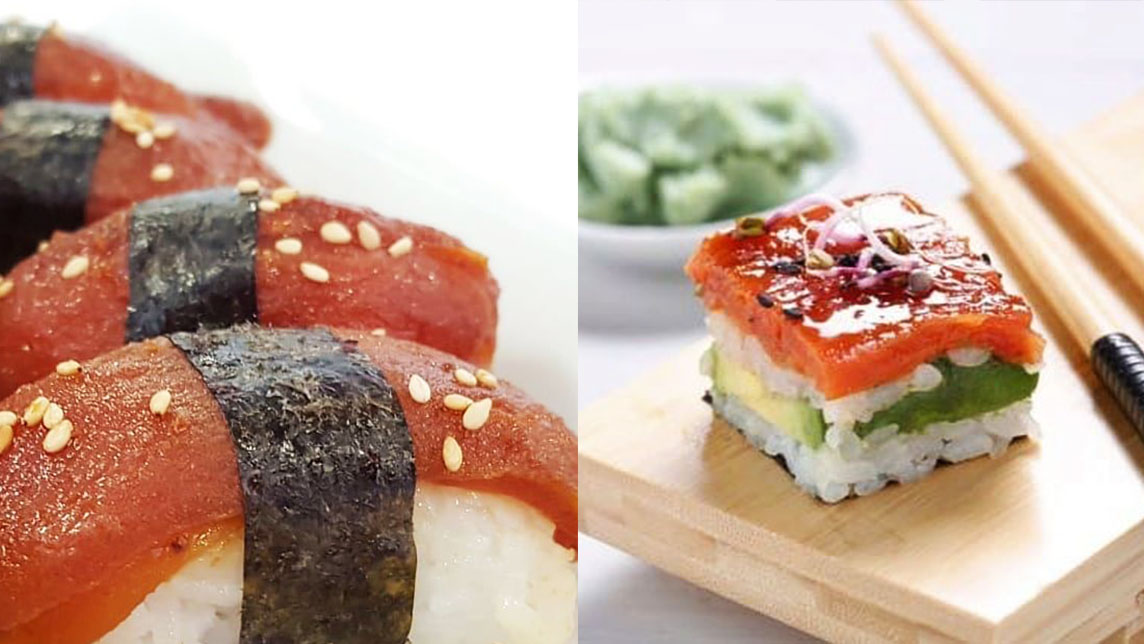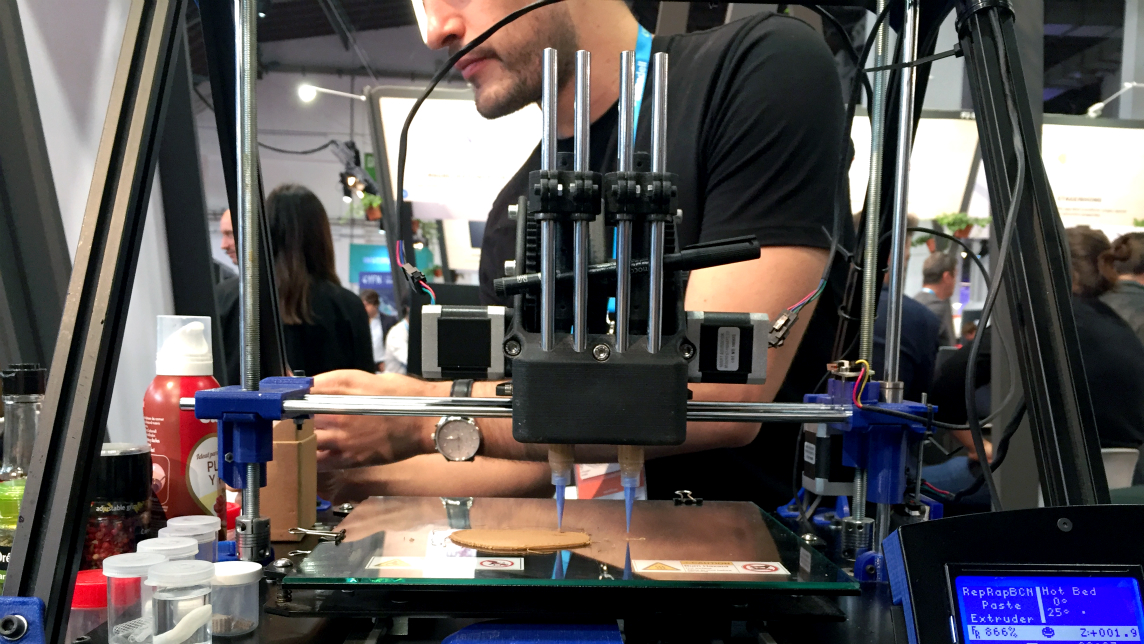Pedro Alvarez Bretones is a veteran entrepreneur who has trodden an unusual path to startup creation, having first created and presided over food innovation hub Ivoro for almost two decades. For his latest venture, he is targeting an untapped niche in Europe's sustainable food market: fish substitutes.
As a Spaniard, Alvarez lives in one of the countries with the highest fish consumption per capita in the world. Yet according to the UN, nearly 90% of the world's marine fish stocks are either depleted, over-exploited or fully exploited. Although there are no market figures for fish substitutes, the meat substitute market is predicted to be worth US$9.25bn in 2023, increasing at a CAGR of 9.4% from 2018.
Banking on the fast-rising popularity of veganism and sustainability to propel the company forward, Alvarez and co-founder chef Polly Amador created Mimic Seafood. Its first vegetable-based product, Tunato, is a tuna substitute made from Spanish tomatoes that is market ready.
Speaking to CompassList at the Smart Agrifood Summit earlier this year, where he presented Mimic Seafood, Alvarez discussed his ambitions for the company and why he feels the time is right for disruption in the food sector.
This interview has been translated from Spanish, condensed and edited for clarity.
Q. Could you tell us about your innovation hub Ivoro and its relationship with Mimic Seafood?
I am the founder and CEO of Ivoro, a private food innovation hub in Madrid that was founded as Gastromedia in 2001. Mimic Seafood is an internally incubated company a year in development and awaiting a team to be assigned to it. We are not a tech hub, but are dedicated to helping Spanish SME food companies find strategic growth areas, new business lines, products and develop brands. We have a team of 10 experienced in agro-industry.
We also invest in startups, connect them with VCs, and create and incubate our own products like Mimic Seafood.
How did you conceive Mimic Seafood?
One year ago, my co-founder and I were inspired by Ocean Hugger Foods. We thought about being in Spain right now, with ocean contamination and endangered species concerns, and the fact that lots of people won't eat raw seafood for allergy and other reasons. As Spain is also one of the major producers of tomatoes and vegetables, we decided to create Mimic to find vegetable-based alternatives to seafood.
The idea came first, and then it was about finding a partner with the right tomatoes in Spain. Luckily we found a Catalan company that has the seed of a tomato called "Fingerino" – the tomato is long and elongated, and has some special characteristics – so we did a joint venture to develop the product. The company put us in contact with growers in Almeria and Catalonia to have guaranteed production in summer and winter. We did tests in our kitchen lab and the next step was to find a pilot plant in order to scale pre-industrially.
Tell us about your first products.
The first, made of tomato, is called Tunato. We don't want to over-process our foods like many other substitute vegan products. We simply cut and peel the tomato, then it undergoes a flavoring process and baking to give it its final texture. The most important factor for us was to mimic an experience, like sushi, that has a ritual, with wasabi, soy and chopsticks. The taste is of sushi. In the first phase, we don't think it is important for it to have protein like real fish, because we don't want to process the product more.
We are also developing a salmon substitute made from carrot, and an eel substitute made from aubergine. In tests we have already got the appearance and the texture right.

Tell us about your pricing strategy.
We don't sell the ready-to-eat sushi, we sell the "meat" B2B. It comes in 350g packs and we will go up to 1kg packs with 70 pieces at €18, so each costs about €0.25. We have tested this price point with sushi retailers in supermarkets and it seemed competitive – they pay around €25 for a real tuna with all the bits you can't use and then you need to prepare it.
We think the product needs a lot of branding and marketing to people who are very aware of environmental issues, not just vegans but flexitarians, climatarians and anyone aware of the need to change habits.
What will your sales strategy be?
We have three types of clients. First, companies that manage sushi corners in retailers like Carrefour – one company manages Carrefour's entire European sushi operations – and by accessing very few such companies, we could reach thousands of sales points.
Secondly, chains of sushi restaurants or Asian chains like Udon with its 100 restaurants in Spain. We are presenting the product to them but one demand we insist on is that the menu carries our trademark.
Lastly, we are targeting corporate canteens which we can reach via corporate catering companies.
Our aim is not to replace, but be an alternative, to tuna sushi.
Which markets are you targeting?
We have a global outlook but we first need to validate the product in Spain, after which it will be easier to reach French Carrefour, etc. We don't yet have commercial customers; we are in a pilot phase.
In July we are doing a test with Ametller Origen organic stores in Barcelona. When the test is over, we will start selling properly. We are also looking for a second manufacturer to guarantee production if demand increases.
What are your financing needs?
So far, the design, the patent, brand, webpage and packaging were done in-house. In time and costs, we have spent about €200,000. After the test, we will do an investment round, possibly from September to year-end, for €250,000 to create a small team with a CEO and salesperson, backed by Ivoro for this first stage.
If we meet projected sales and production levels, then we will do another round to scale outside of Spain, maybe a year later.
Are market conditions positive for a startup like Mimic?
We are lucky enough to be at an incredible moment – had we launched three years ago, we would have had to do all the groundwork of convincing people but, in Spain, companies like Foods for Tomorrow have helped open eyes to the economic possibilities and those of the consumers.
In Spain and Europe, in our niche we don't have any competitors. In the US one was our inspiration; we will compete with them and sell in Europe before they do.











